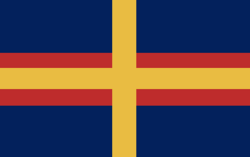United States of Germaeia
United States of Germaeia | |||||||||||||||
|---|---|---|---|---|---|---|---|---|---|---|---|---|---|---|---|
| 1503-1901 | |||||||||||||||
|
Flag | |||||||||||||||
| 250px USG in 1503 | |||||||||||||||
| Official languages | Ormska | ||||||||||||||
| History | |||||||||||||||
| |||||||||||||||
The United States of Germaeia, also known as USG was country in western Glaskarn that existed from 1503-1901. It was founded after the fall of the Krystallic Empire. The USG was large and vast and at times waged large-scale political and military conflicts, however, over time, that was not sustainable and at the end of its existence, it became known for mismanagement of state wealth, continuous taxing foreign involvements and a head of state with no formal or otherwise authority.
Contents
- 1 History
- 1.1 State System
- 1.2 Triple Coordinate War (1559-1562)
- 1.3 Balintnic border dispute (1566-1567)
- 1.4 War of Northern Strength (1596-1609)
- 1.5 Balintnic-Mirvan Civil War (1675-1684)
- 1.6 Gowcester independence (1710-1711)
- 1.7 Ljilislovian-Krystallic trade war (1835-1843)
- 1.8 First Great Depression (1630-1636)
- 2 Government and politics
- 3 Geography
- 4 Economy
- 5 Demographics
- 6 Culture
History
USG was founded after the fall of the Krystallic Empire.
State System
In 1503, the Consulate of the Krystallic Empire formally announced the collapse of the Empire. Albert Seidel, the Consul for the Western Autonomous District took control of the area. He established four formal regions, Kadvorland, Zallania, Schweinlan, and Cesterton. The Zallanian and Schweinlan people were very close, but the Cestertons were outcasts.
Kadvorland, Zallania, and Schweinlan. Kadvorland was dominant in the fishing, timber, and shipbuilding industries. Their leadership was very centralized, and practiced democratic values within their inner circle of leadership. Zallania was composed of a disunited organization of free states and cities. Their political power structure was loose, but successful. Communities governed themselves and held strong to the ideal of decentralization. Their main economy was mainly based in agriculture and individualized craftmanship. The guild-system was quite strong and led to a strong union mentality later in the economy of the state. From their agriculture, textile and beer industries were large. In Schweinlan, the urban boom took off the most. They primarily held the financial institutions and trading hubs for the District. They also held the centralized political system that governed the entire District. The urban-rural divide between Zallania and Schweinlan was a point of contention over the years.
Triple Coordinate War (1559-1562)
Balintnic border dispute (1566-1567)
War of Northern Strength (1596-1609)
Balintnic-Mirvan Civil War (1675-1684)
Gowcester independence (1710-1711)
Ljilislovian-Krystallic trade war (1835-1843)
First Great Depression (1630-1636)
Government and politics
Government structure
The Chancellor was the head of state and the Governors ran each individual state. The Chancellor controlled the finances and military while the Governors were given much of the control over their own states. The Chancellor appointed the Governors of the States while the Germaeic Roundtable chose the Chancellor. The Roundtable added members and loosened membership as the years went on.
Domestic politics
List of Chancellors
| No. | Portrait | Name (Birth–Death) |
Term |
|---|---|---|---|
| 1. | 
|
Albert Seidel | 1503-1553 |
| 2. | 
|
Henrik Ferdinand | 1553-1587 |
| 3. | 
|
Orvar Vern | 1587-1617 |
| 4. | 
|
Dene Arran | 1617-1654 |
